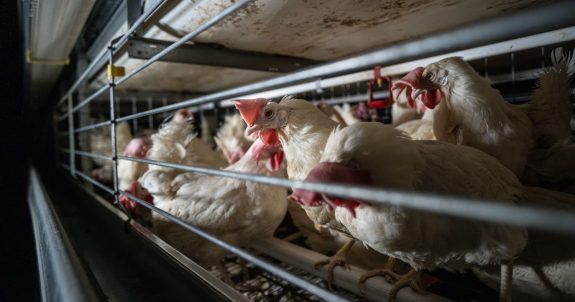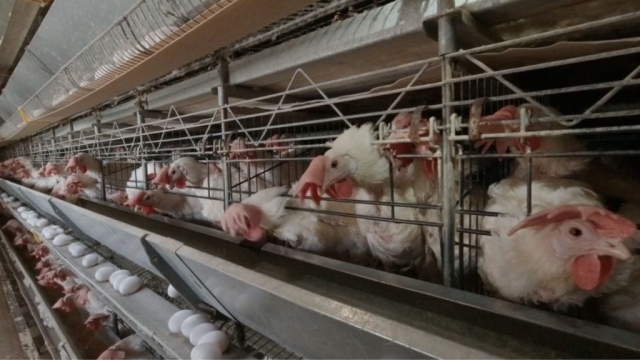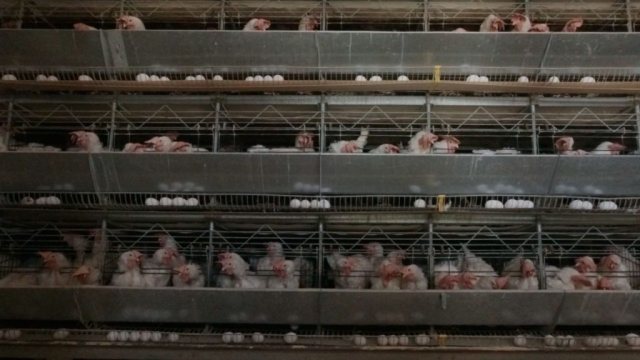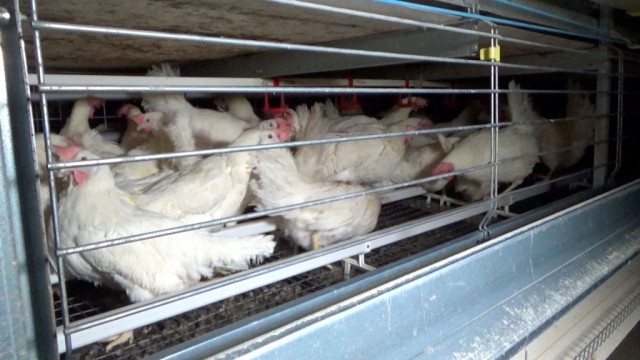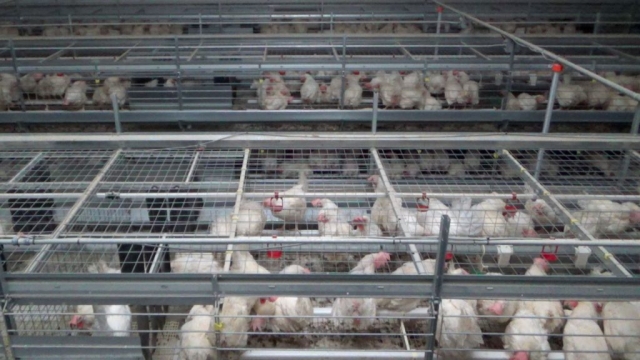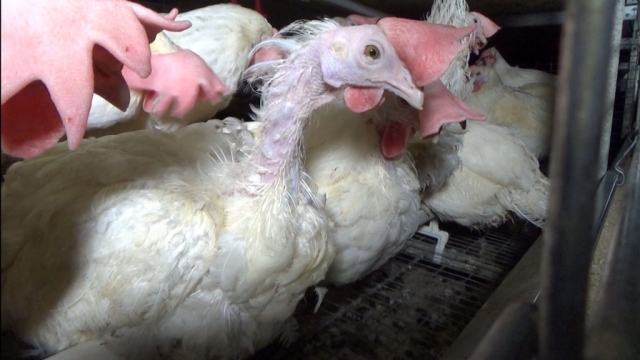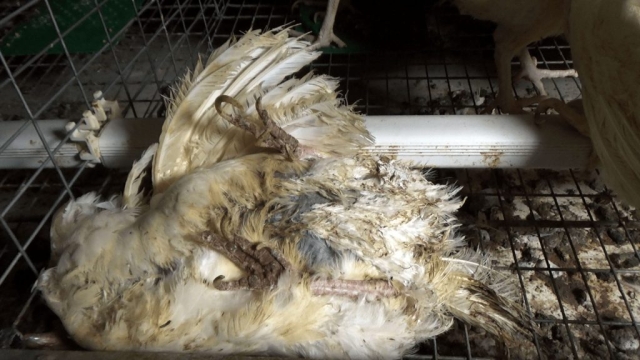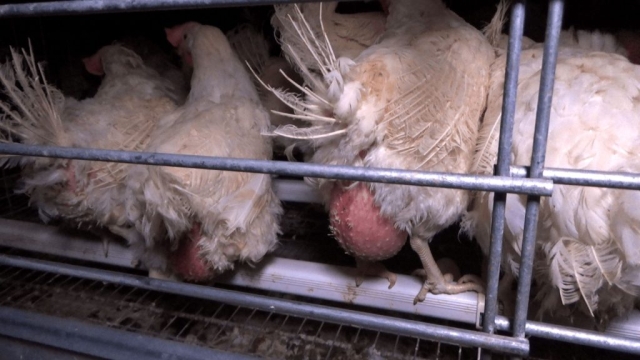Shocking new undercover footage from multiple Canadian egg farms shows the alarming conditions hens endure when crammed into tiny wire cages. This is the largest egg industry investigation ever conducted in Canada. Animal Justice gathered the secretly-recorded video gathered from dozens of farms in British Columbia and Quebec, including farms supplying Golden Valley Eggs, which is sold at Loblaw—the country’s largest grocer.
The troubling footage is one of the first opportunities for the public to learn about a troubling trend—the spread of so-called “enriched” battery cages. Instead of respecting the public’s call for hens to live cage-free, the industry is moving hens into enriched battery cages—a housing system that offers only slightly more space than conventional battery cages, plus some basic furnishings. It still falls far short of offering the greater freedoms that hens deserve.
The video was shot at nearly two dozen egg farms in BC, and two egg farms in Quebec, including farms that confine hens in conventional and enriched and enriched battery cages. Our footage shows:
- Caged hens living in filthy, crowded conditions—in both conventional and enriched battery cages
- Ammonia-filled air burning hens’ skin & eyes
- Sick & injured birds
- Weak, defeated hens
- Hens with missing feathers
- Hens living next to the rotting carcasses of their dead cagemates
Like conventional battery cages, enriched battery cages are stacked wire cages that force birds to live in close quarters, deprived of the ability to engage in most of their natural behaviours. It’s often impossible to tell the difference between conventional and enriched cages.
View the Exposé
Canada Keeps Hens in Cages Instead of Going Cage-Free
Undercover exposés by animal protection groups have raised public awareness about the shocking cruelty behind confining hens in battery cages for their eggs. Following public outrage and pressure, the European Union banned battery cages in 2012, and they were outlawed in multiple US states. In 2016, Canadian egg producers and retailers promised to move away from cages, too.
Canada should be a leader in protecting animals, yet has failed to make any progress on going cage-free. Unlike other countries, Canada is going in a troubling direction by moving toward enriched cages—even though over 75 percent of Canadians oppose caging hens entirely.
In 2022, 75 percent of the eggs produced in the UK were cage-free. In the EU, it was 60 percent, with 34 percent in the US. In Canada, just 17 percent of eggs were from cage-free hens. Nationally, the total percentage of hens in cages has barely changed at all in recent years.
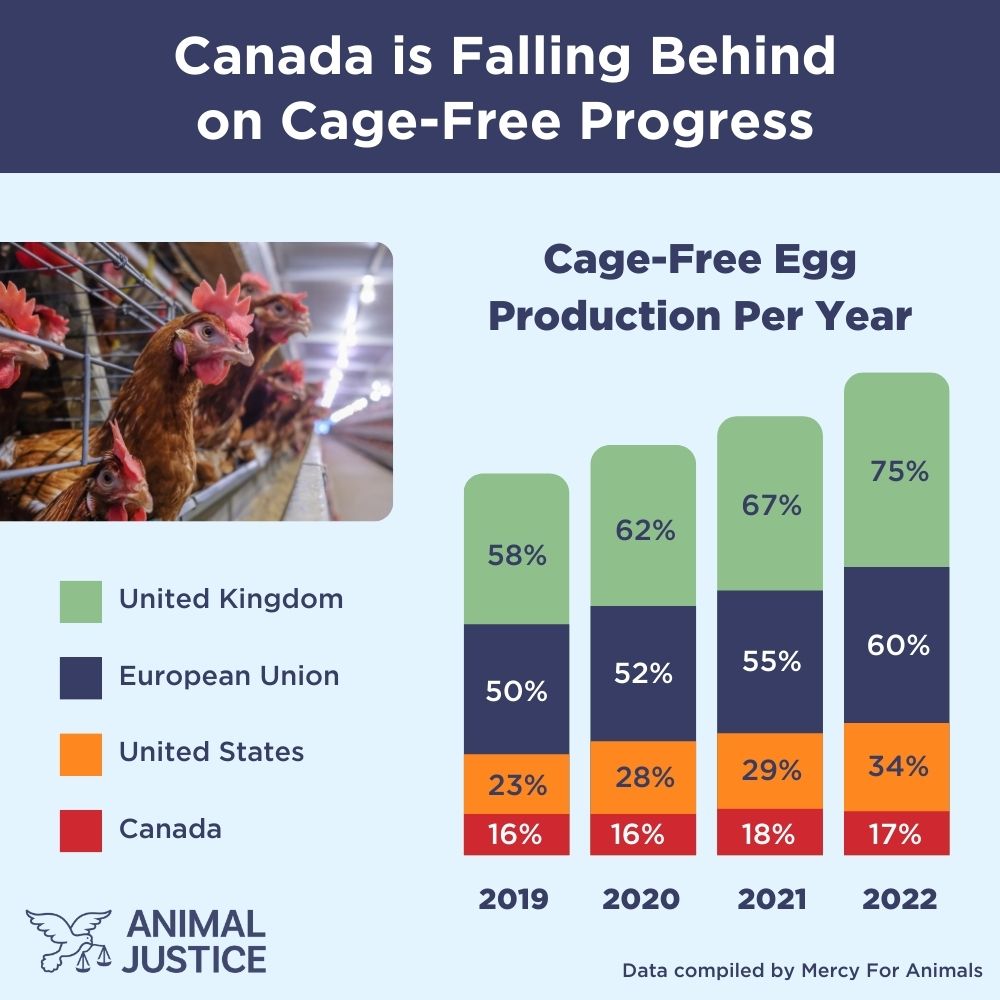
Can you spot the difference between conventional battery cages & enriched battery cages?
Enriched Battery Cages Are Still Cruel
The industry claims enriched cage eggs are a better option, and by moving in this direction, welfare is greatly improving in the industry. But these cages only have minor improvements. They tend to be slightly larger and feature metal or plastic bars for the birds to stand on, rubber scratch pads, and plastic flaps for hens to lay eggs behind.
But a decorated cage is still a cage, and hens are still confined in filthy, crowded conditions where the ammonia-laden air burns their skin and eyes. It’s an intensive confinement system that allows producers to continue making maximum profits, because it’s cheaper to lock hens in cages than to let them roam cage-free.
Just like in conventional battery cage farms, hens in enriched battery cages suffer serious injuries, illness, and death from a lifetime of feces-covered captivity, and from being stuck in close quarters with other frustrated and suffering birds.
Burnbrae Eggs Mislead Consumers
Burnbrae is Canada’s largest egg producer, and over 50 percent of their eggs still come from conventional cages. Burnbrae sells eggs from battery cages and “enriched” battery cages with special names, under its “Naturegg” and “Nestlaid” labels. Their egg cartons also feature grassy imagery, even though caged hens never go outdoors.
A new survey of more than 1000 Canadians by Animal Justice and Bryant Research found that Burnbrae’s packaging is highly misleading. Only 11 percent of people answered correctly that the term “enriched colony housing” refers to metal cages.
Burnbrae Marketing vs Reality
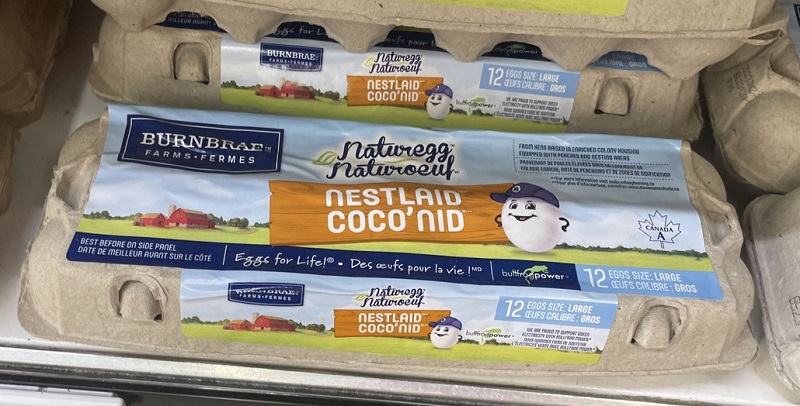
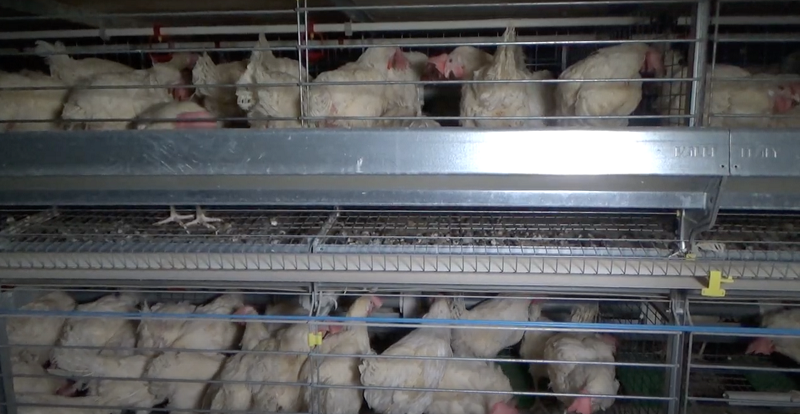
No Hen Protection Laws
In Canada, there are no laws governing the on-farm treatment of animals. Instead, the industry makes up its own rules, by creating codes of practice through the National Farm Animal Care Council (NFACC).
NFACC is made up of industry associations like the Egg Farmers of Canada, corporations like Burnbrae, and grocers like Loblaws. Of NFACC’s 57 partner organizations, 47 make their money from the production and sale of animal products, and only two are animal welfare organizations.
When the public demanded better welfare for hens, NFACC made a big promise in 2017 to phase-out battery cages. But instead of moving towards cage-free production like in other countries, NFACC said that cruel enriched cages were still acceptable. As a result, retailers and grocers have backed out of their promises to sell only cage-free eggs, and instead let NFACC dictate conditions for hens.
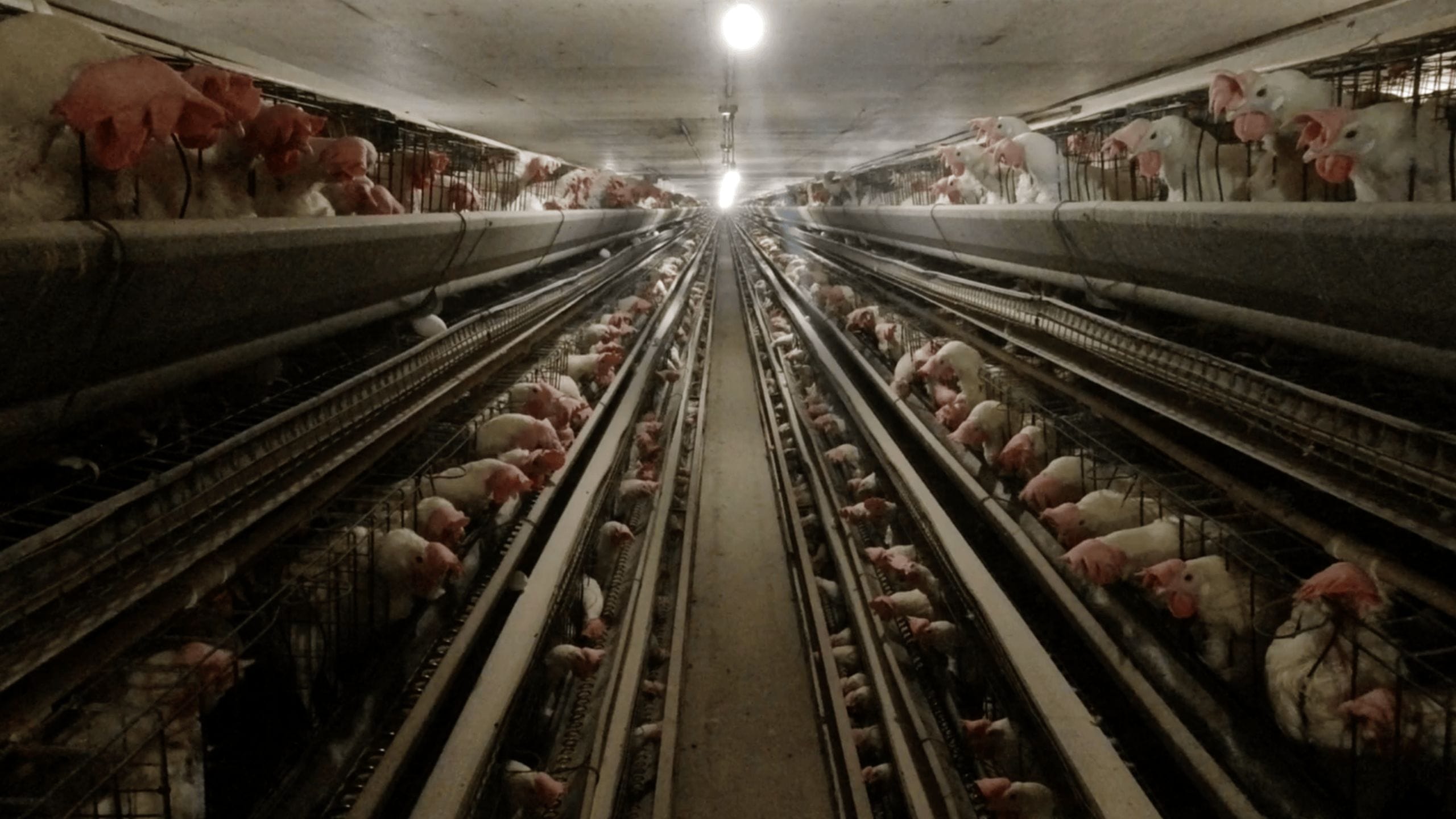
Take Action for Hens
Egg-laying hens endure heartbreaking misery and abuse in cages, until their bodies waste away from overproduction. Companies like Burnbrae are leading the industry’s enriched cage scam, and raking in profits by keeping birds languishing in cages—all while misleading consumers.
Tell Burnbrae they can’t continue to mislead consumers by promising change and abandoning their commitments. Sign our petition today and ask Canada’s largest egg supplier to go completely cage-free.
Banner: Hens in “enriched” battery cage at British Columbia egg farm. Credit: Abigail Messier | We Animals Media.

